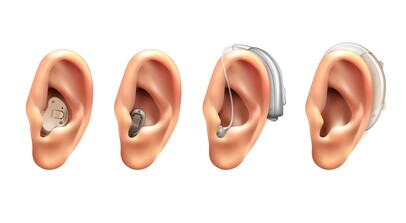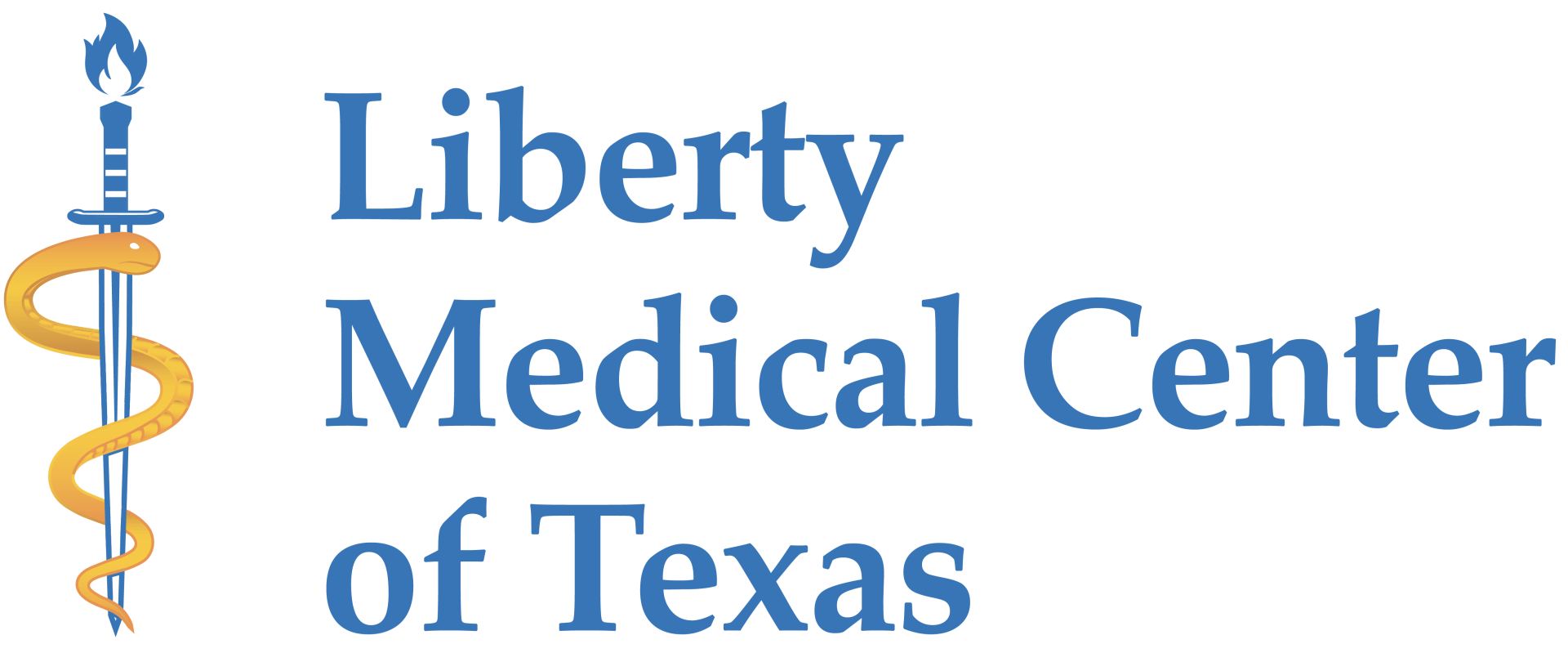 Image by Jirawat Plekhongthu via Vecteezy
Image by Jirawat Plekhongthu via Vecteezy
The Gift of Better Hearing
By Oanh Duong
Do you find yourself having to ask people to repeat themselves at a party or in a noisy area? You can hear, but isolating the speaker’s voice from other sounds is difficult. Constantly asking others to repeat themselves can lead to fatigue and withdrawal from socializing. Not being able to understand and engage others can be isolating particularly during the holidays when families and friends gather to celebrate.
This can be especially true for our veteran community, where hearing loss is one of the most common service related disabilities. A CDC study on male veterans and hearing loss found that veterans were more likely than non-veterans to have little to moderate hearing loss, with those ages 18-44 being 3 times more likely. Even mild hearing loss can have a direct effect on a veteran’s quality of life and emotional wellness. It can negatively affect their ability to communicate, connect with others, and perform daily activities.
Less than 1/3 of people with hearing loss use hearing aids. One reason for this is that prescription hearing aids can cost $1,000 to $6,000 per ear. In order for a hearing aid to be covered by Veterans Affairs (VA) health benefits, a veteran would need to be tested and approved for a hearing aid based on specific criteria. For some, the cost, effort, and sometimes distance to the nearest specialist may outweigh the perceived benefit.
OTC Hearing Aids
Fortunately, in mid-October it became easier to give your favorite veteran the gift of better hearing. A recent ruling by the FDA established an OTC (over the counter) hearing aid category making it easier to purchase hearing aids over the counter and from online retailers. The ruling sets requirements for safety and labeling of hearing aids that can be sold to consumers without a prescription for adults with perceived mild to moderate hearing loss <link to These early signs of hearing loss deserve your attention article in the August blog folder>. Without the need for a prescription or custom fitting, OTC hearing aids are significantly cheaper than prescription hearing aids.
Buying an OTC Hearing Aid
A Google search on OTC hearing aids generated links to models ranging from $200 to $800. Without a prescription or custom fitting, it is up to the consumer to make sure that the OTC hearing aid is a good fit. Each individual has their own specific preferences and requirements but there are some things to pay attention to when buying an OTC hearing aid.
Personal Sound Amplification Product (PSAPs)
Make sure you know what you are buying. A personal sound amplification product (PSAPs) is not an OTC hearing aid. There are no FDA safety requirements for the sale of PSAPs. OTC hearing aids amplify specific frequencies, whereas PSAPs amplify all sounds and are often used recreationally.
Return Policy
Carefully read the return policy. Are there fees associated with a return? Some retailers may charge a restocking or shipping fee. Does it give the user enough time to try out the device to ensure good fit and function? It can take time for a user to get used to a new device.
Features
Determine if the OTC hearing aid has the features you want. Features available in OTC hearing aids include volume control, water resistance, and a rechargeable battery. Many also have the ability to sync with a smartphone to make phones calls or remotely change the preferences for the device.
Style
Consider the style of the OTC hearing aid. Behind the ear styles tend to have more power than inside the ear models, which are more discreet. There are also hearing aids that resemble earbuds, but these are not intended for all day use.
By Oanh Duong
Do you find yourself having to ask people to repeat themselves at a party or in a noisy area? You can hear, but isolating the speaker’s voice from other sounds is difficult. Constantly asking others to repeat themselves can lead to fatigue and withdrawal from socializing. Not being able to understand and engage others can be isolating particularly during the holidays when families and friends gather to celebrate.
This can be especially true for our veteran community, where hearing loss is one of the most common service related disabilities. A CDC study on male veterans and hearing loss found that veterans were more likely than non-veterans to have little to moderate hearing loss, with those ages 18-44 being 3 times more likely. Even mild hearing loss can have a direct effect on a veteran’s quality of life and emotional wellness. It can negatively affect their ability to communicate, connect with others, and perform daily activities.
Less than 1/3 of people with hearing loss use hearing aids. One reason for this is that prescription hearing aids can cost $1,000 to $6,000 per ear. In order for a hearing aid to be covered by Veterans Affairs (VA) health benefits, a veteran would need to be tested and approved for a hearing aid based on specific criteria. For some, the cost, effort, and sometimes distance to the nearest specialist may outweigh the perceived benefit.
OTC Hearing Aids
Fortunately, in mid-October it became easier to give your favorite veteran the gift of better hearing. A recent ruling by the FDA established an OTC (over the counter) hearing aid category making it easier to purchase hearing aids over the counter and from online retailers. The ruling sets requirements for safety and labeling of hearing aids that can be sold to consumers without a prescription for adults with perceived mild to moderate hearing loss <link to These early signs of hearing loss deserve your attention article in the August blog folder>. Without the need for a prescription or custom fitting, OTC hearing aids are significantly cheaper than prescription hearing aids.
Buying an OTC Hearing Aid
A Google search on OTC hearing aids generated links to models ranging from $200 to $800. Without a prescription or custom fitting, it is up to the consumer to make sure that the OTC hearing aid is a good fit. Each individual has their own specific preferences and requirements but there are some things to pay attention to when buying an OTC hearing aid.
Personal Sound Amplification Product (PSAPs)
Make sure you know what you are buying. A personal sound amplification product (PSAPs) is not an OTC hearing aid. There are no FDA safety requirements for the sale of PSAPs. OTC hearing aids amplify specific frequencies, whereas PSAPs amplify all sounds and are often used recreationally.
Return Policy
Carefully read the return policy. Are there fees associated with a return? Some retailers may charge a restocking or shipping fee. Does it give the user enough time to try out the device to ensure good fit and function? It can take time for a user to get used to a new device.
Features
Determine if the OTC hearing aid has the features you want. Features available in OTC hearing aids include volume control, water resistance, and a rechargeable battery. Many also have the ability to sync with a smartphone to make phones calls or remotely change the preferences for the device.
Style
Consider the style of the OTC hearing aid. Behind the ear styles tend to have more power than inside the ear models, which are more discreet. There are also hearing aids that resemble earbuds, but these are not intended for all day use.
Additional Requirements and Accessories
You should factor in the long term cost of owning a hearing aid. Does the OTC hearing aid need batteries or accessories that will have to be purchased separately? How often would they need to be replaced? Is there an app that would need to be downloaded onto a smartphone? Some users may prefer more manual operations and syncing with a smart phone may not be an option.
Support and Warranty
Look at what support the retailer or manufacturer offers. Do they provide services to help ensure a good fit? In the end, it may be beneficial to consult a healthcare professional or hearing specialist if you continue to have difficulty finding the right fit.
Is there a warranty and when does the warranty expire? Does the credit card that you use to purchase the hearing aid have benefits to extend the manufacturer’s warranty?
Warnings
Follow label warnings. OTC hearing aids are meant for mild to moderate hearing loss. They may not provide sufficient amplification for more severe cases. Consult your doctor or a hearing specialist for more severe hearing problems, such as sudden hearing loss, inability to hear loud noises, inability to hear a person speaking in a quiet setting, or recent trauma that led to hearing difficulties.
Financial Assistance
Medicare does not cover hearing aids, but as of the writing of this article, hearing aids including OTC hearing aids and batteries are FSA eligible expenses. Manufacturers may also offer veteran discounts. Churches and other faith based organizations may have financial assistance for hearing aids.
Hopefully, finding the right OTC hearing aid will get easier and more affordable as more models become available. In the meantime, Liberty Medical Center of Texas is here to support our veteran community. Please contact the center for more information on our psychological and medical services, including audiology.
Article Sources:
“Federal Register :: Medical Devices; Ear, Nose, and Throat Devices; Establishing Over-the-Counter Hearing Aids” (August 17, 2022) Federal Register. https://www.federalregister.gov/documents/2022/08/17/2022-17230/medical-devices-ear-nose-and-throat-devices-establishing-over-the-counter-hearing-aids
“Hearing Aid Information” Texas Health & Human Services Commission, https://www.hhs.texas.gov/services/disability/deaf-hard-hearing/hearing-aid-information
Jacqueline W. Lucas, M.P.H., and Carla E. Zelaya, Ph.D. (2020, June 12) “Hearing Difficulty, Vision Trouble, and Balance Problems Among Male Veterans and Nonveterans” CDC https://www.cdc.gov/nchs/data/nhsr/nhsr142-508.pdf
“Over-the-Counter (OTC) Hearing Devices”, Hearing Loss Association of America, https://www.hearingloss.org/hearing-help/technology/otc-hearing-devices/
Over-the-Counter Hearing Aids. https://www.nidcd.nih.gov/health/over-counter-hearing-aids
Mandy Mroz (September 14, 2022) “Insurance and financial assistance for hearing aids.” Healthy Hearing https://www.healthyhearing.com/help/hearing-aids/insurance-financial-assistance
Medicare Benefits. https://www.medicare.gov/coverage/hearing-aids
VHA Audiology. https://www.prosthetics.va.gov/audiology/index.asp
You should factor in the long term cost of owning a hearing aid. Does the OTC hearing aid need batteries or accessories that will have to be purchased separately? How often would they need to be replaced? Is there an app that would need to be downloaded onto a smartphone? Some users may prefer more manual operations and syncing with a smart phone may not be an option.
Support and Warranty
Look at what support the retailer or manufacturer offers. Do they provide services to help ensure a good fit? In the end, it may be beneficial to consult a healthcare professional or hearing specialist if you continue to have difficulty finding the right fit.
Is there a warranty and when does the warranty expire? Does the credit card that you use to purchase the hearing aid have benefits to extend the manufacturer’s warranty?
Warnings
Follow label warnings. OTC hearing aids are meant for mild to moderate hearing loss. They may not provide sufficient amplification for more severe cases. Consult your doctor or a hearing specialist for more severe hearing problems, such as sudden hearing loss, inability to hear loud noises, inability to hear a person speaking in a quiet setting, or recent trauma that led to hearing difficulties.
Financial Assistance
Medicare does not cover hearing aids, but as of the writing of this article, hearing aids including OTC hearing aids and batteries are FSA eligible expenses. Manufacturers may also offer veteran discounts. Churches and other faith based organizations may have financial assistance for hearing aids.
Hopefully, finding the right OTC hearing aid will get easier and more affordable as more models become available. In the meantime, Liberty Medical Center of Texas is here to support our veteran community. Please contact the center for more information on our psychological and medical services, including audiology.
Article Sources:
“Federal Register :: Medical Devices; Ear, Nose, and Throat Devices; Establishing Over-the-Counter Hearing Aids” (August 17, 2022) Federal Register. https://www.federalregister.gov/documents/2022/08/17/2022-17230/medical-devices-ear-nose-and-throat-devices-establishing-over-the-counter-hearing-aids
“Hearing Aid Information” Texas Health & Human Services Commission, https://www.hhs.texas.gov/services/disability/deaf-hard-hearing/hearing-aid-information
Jacqueline W. Lucas, M.P.H., and Carla E. Zelaya, Ph.D. (2020, June 12) “Hearing Difficulty, Vision Trouble, and Balance Problems Among Male Veterans and Nonveterans” CDC https://www.cdc.gov/nchs/data/nhsr/nhsr142-508.pdf
“Over-the-Counter (OTC) Hearing Devices”, Hearing Loss Association of America, https://www.hearingloss.org/hearing-help/technology/otc-hearing-devices/
Over-the-Counter Hearing Aids. https://www.nidcd.nih.gov/health/over-counter-hearing-aids
Mandy Mroz (September 14, 2022) “Insurance and financial assistance for hearing aids.” Healthy Hearing https://www.healthyhearing.com/help/hearing-aids/insurance-financial-assistance
Medicare Benefits. https://www.medicare.gov/coverage/hearing-aids
VHA Audiology. https://www.prosthetics.va.gov/audiology/index.asp
To become a member and receive our services, please apply on our Liberty Medical Center of Texas Form and learn more about how we can help you today.


